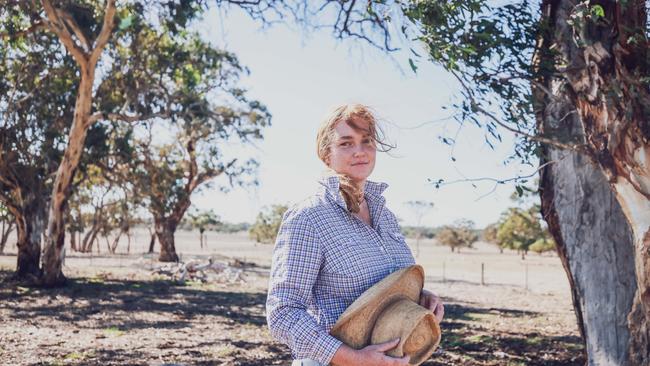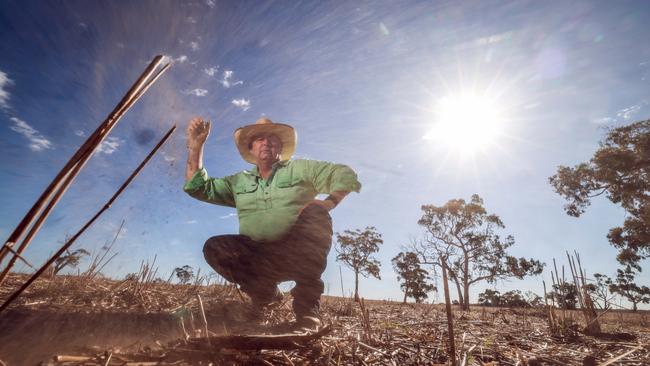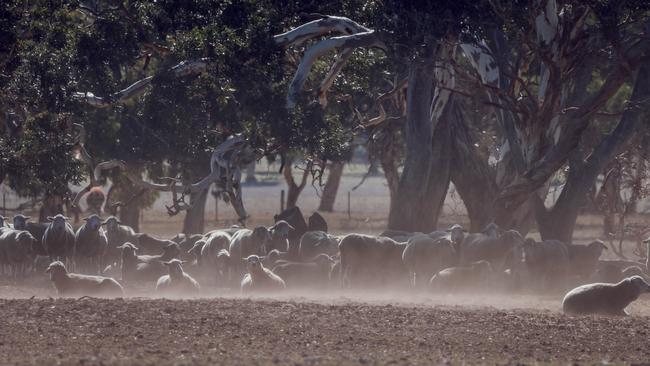Farmers along the border are battling a two year drought and saline water
Farmers on the Victorian-South Australian border are enduring extreme conditions. For Scott Harlock, “the entire system is out of whack”.

Drought-hit South Australian farmers from the Upper South East, right down to Mount Gambier, are desperately waiting for rain, as false starts so far set back hopes for a good autumn break.
Livestock numbers have been sold down, farmers are entering their second year of intense hand feeding and underground water is becoming saline as irrigators draw down on resources, sparking fears for stock drinking water going forward.
Livestock contractor Claire Koch, who works with farmers throughout the South East, says some farms have had a start, but most are waiting.
“It depends on the microclimate and soil type, but generally, it is the driest many people have seen it,” she said. “Farmers are intensely feeding livestock and it is wearing thin.”

A farmer she works with near Penola, Scott Harlock at Bool Lagoon, said his farm had 306mm in the past 12 months, in a 550mm annual rainfall district, and just 25mm for the year-to-date. And it wasn’t just the amount, but the fact that what had fallen was outside the growing season.
“It's a completely irregular pattern,” he said. “The entire system is out of whack.”
Mr Harlock has actively managed the change, moving from autumn to spring calving and pushing lambing from April to the start of June to give pastures a chance if rain arrive.
He sold off 500 ewes from his 2300 flock, and is containment feeding, saying he felt back in August the season was again turning bad.
Input costs had risen by more than 20 per cent, stock prices had not kept pace, he said, with many farmers again asking banks for more working capital loans to continue operating.
Ms Koch said areas around Hynam, near Naracoorte, experienced three false starts last season which depleted pasture seedbanks ahead of this year, allowing weeds to take off.
“A drought in this region is not comparable to NSW, this country needs to be driven harder (be more productive) to make repayments - we pay good money for the rain (we normally get),” she said.
More Coverage







